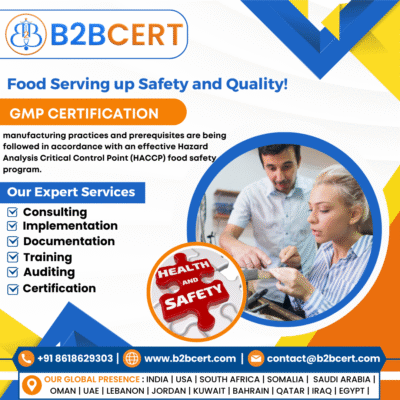In India’s fast-growing digital economy, businesses increasingly rely on data to operate, innovate, and serve customers. With this dependency comes a critical responsibility: ensuring information security and data protection. Organizations in technology hubs like Bangalore and Chennai—which host thousands of IT firms, SaaS providers, cloud service companies, and BPOs—are under constant scrutiny from clients and regulators regarding how they manage and protect sensitive information.
This is where ISO 27001 certification in Bangalore and SOC 2 certification in Bangalore become vital. Both frameworks demonstrate a company’s commitment to cybersecurity, but they differ in scope, applicability, and global recognition. For Indian businesses, achieving either or both certifications can be a game-changer in terms of reputation, client acquisition, and compliance readiness.
In this blog, we’ll explore what these certifications are, why businesses need them, their impact, and the key differences—focusing on their relevance to companies in Bangalore and Chennai.
What is ISO 27001 Certification?
ISO 27001 is an international standard for Information Security Management Systems (ISMS), developed by the International Organization for Standardization (ISO) and the International Electrotechnical Commission (IEC).
It provides a framework for companies to establish, implement, maintain, and continually improve their ISMS. ISO 27001 covers:
-
Risk assessment and treatment
-
Access control policies
-
Physical and digital security controls
-
Data classification and handling
-
Business continuity planning
-
Compliance with legal requirements
For Indian businesses, ISO 27001 is widely recognized across industries—from IT and BFSI to healthcare, manufacturing, and government.
What is SOC 2 Certification?
SOC 2 (System and Organization Controls 2) is an auditing framework developed by the American Institute of Certified Public Accountants (AICPA). Unlike ISO 27001, which is a prescriptive standard, SOC 2 focuses on how an organization manages customer data based on five Trust Service Criteria:
-
Security
-
Availability
-
Processing integrity
-
Confidentiality
-
Privacy
SOC 2 is particularly important for technology-driven organizations such as SaaS firms, cloud providers, and data centers, many of which are concentrated in Bangalore and Chennai. It reassures clients—especially from the US and Europe—that the service provider follows stringent internal controls to safeguard data.
Why Do Indian Businesses Need ISO 27001 certification in Bangalore and SOC 2 Certification in Bangalore?
Both certifications serve as powerful trust signals. Here’s why businesses in Bangalore and Chennai should prioritize them:
1. Global Client Expectations
-
Bangalore, often called the “Silicon Valley of India,” is home to thousands of SaaS startups and IT service exporters.
-
Chennai, with its strong BPO and IT outsourcing ecosystem, caters to clients across North America and Europe.
Global clients expect their vendors to be ISO 27001 certified or SOC 2 compliant. Without these certifications, Indian firms may lose out on major contracts.
2. Cybersecurity Threats in India
India has seen a sharp increase in cyberattacks, ransomware, and data breaches. Certifications like ISO 27001 and SOC 2 force organizations to adopt strong security frameworks that minimize risks.
3. Regulatory Alignment
With the introduction of the Digital Personal Data Protection Act (DPDPA) 2023, Indian businesses need to prove their data protection readiness. While not legally mandated, ISO 27001 and SOC 2 demonstrate compliance with global and domestic requirements.
4. Investor and Partner Confidence
Startups and SMEs in Bangalore and Chennai often seek funding. Investors look for proof of robust governance, and these certifications provide exactly that.
5. Competitive Advantage
In two of India’s most competitive IT hubs, ISO 27001 and SOC 2 can be powerful differentiators, helping businesses stand out among thousands of players.
How Do These Certifications Impact Businesses?
1. Improved Reputation and Trust
A company with ISO 27001 or SOC 2 certification is perceived as more reliable and trustworthy. This directly impacts brand reputation.
2. Higher Client Acquisition and Retention
International clients are more likely to engage with certified vendors. Existing clients also feel reassured, leading to long-term relationships.
3. Operational Efficiency
Both certifications require businesses to streamline processes, implement policies, and monitor controls, which enhances efficiency.
4. Reduced Risk of Breaches
Strong security frameworks mean fewer vulnerabilities, reducing the chances of costly breaches or compliance penalties.
5. Employee Awareness
Certification processes include staff training, making employees more vigilant about data protection in their daily work.
6. Business Continuity
ISO 27001, in particular, emphasizes business continuity planning, ensuring companies remain resilient during crises like cyberattacks or system outages.
ISO 27001 vs SOC 2: Key Differences
While both certifications focus on information security, there are critical differences:
| Aspect | ISO 27001 | SOC 2 |
|---|---|---|
| Origin | International (ISO/IEC) | American (AICPA) |
| Scope | Establishing and managing an ISMS | Evaluating internal controls around data security |
| Applicability | Global recognition across industries | Primarily relevant for technology/service providers |
| Approach | Prescriptive standard with defined controls | Auditing framework based on trust criteria |
| Certification/Audit | Formal certification issued by accredited bodies | Independent audit report from CPA firms |
| Best For | Businesses of all sizes and industries (finance, healthcare, IT, etc.) | SaaS, cloud, IT services, and outsourcing companies |
In short:
-
ISO 27001 is broader and internationally recognized across all industries.
-
SOC 2 is more client-driven, particularly demanded by US-based clients in the tech sector.
For businesses in Bangalore and Chennai, the choice often depends on their target market and industry. Many companies even pursue both certifications to maximize trust and global opportunities.
Relevance in Bangalore and Chennai
Bangalore
Known as India’s IT capital, Bangalore hosts thousands of software development firms, SaaS startups, and cloud service providers. These businesses often target US and European markets where SOC 2 compliance is mandatory. At the same time, ISO 27001 helps them secure clients across industries and comply with broader global standards.
Chennai
Chennai is a major hub for BPOs, IT outsourcing companies, and financial service providers. Here, ISO 27001 certification plays a huge role in winning contracts from BFSI clients who demand stringent ISMS controls. SOC 2, on the other hand, is critical for BPOs and IT firms dealing with large volumes of customer data from global clients.
Why Indian Businesses Should Act Now
Cybersecurity threats and data protection requirements are growing rapidly in India. Waiting to adopt these certifications can put companies at risk of losing contracts and credibility. By investing in ISO 27001 or SOC 2 today, businesses in Bangalore and Chennai can:
-
Build stronger defenses against cyberattacks.
-
Increase trust with global and domestic clients.
-
Stay ahead of compliance requirements.
-
Strengthen their brand image in highly competitive markets.
Conclusion
In the digital era, trust is everything. For businesses in Bangalore and Chennai, where competition in IT and outsourcing is intense, achieving ISO 27001 certification in Bangalore and SOC 2 certification in Bangalore is not just about compliance—it’s about survival and growth.
-
ISO 27001 provides a globally recognized framework for managing information security across industries.
-
SOC 2 demonstrates to clients—especially in the US—that your organization protects customer data with rigorous controls.
Together, these certifications help Indian businesses win global clients, reduce risks, and create a culture of security and compliance. In a rapidly evolving market, they serve as powerful tools to build trust, ensure resilience, and accelerate business success.




